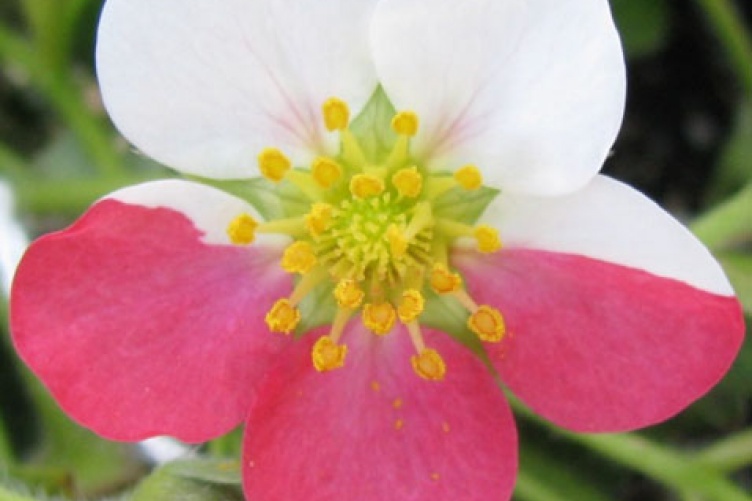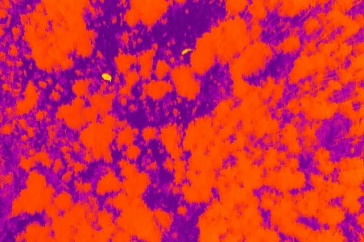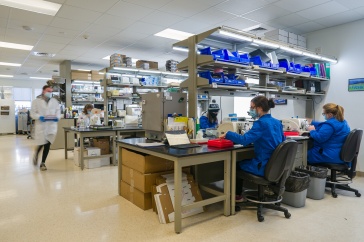
Researchers with the NH Agricultural Experiment Station will discuss their latest research at the Macfarlane Research Greenhouses at a Research “Field Day” Friday, March 31. The event, which will be held as part of the UNH Spring Greenhouse Open House, runs from 9:30 to 11:30 a.m. It is free and open to the public.
Research presentations include:
- Investigating Genetic Mechanism(s) of Resistance to Wheat Stem Rust in Barberry
- Evaluating Wood Fiber and Coconut Coir Effects on pH Buffering Capacity and Nitrogen Drawdown in Container Media
- Using Data Logging Scales to Monitor and Control Irrigation in Container Crops
- Screening Echinacea Varieties for Lower Leaf Purpling Disorder
- Applying Engineering Principles to the Design of Recirculating Aquaponic Systems
- Controlled Environment Agriculture Systems
- Project OASIS: Optimizing Aquaponic Systems for Improved Sustainability
- Kiwiberry Development for New England
- Pesky Weeds and Patchy Resources: Root Foraging and Competition
- Plant Improvement in the Three Major Economically Important Species of Squash and Pumpkin
- Breeding Ornamental Strawberries
- Breeding Strawberry for Organic Agriculture
- Will Melon Grafted to Interspecific Hybrid Squash Rootstock Have an Increased Tolerance to Sold Soil Temperature and Soil Borne Pathogens?
With more than 25,000 square feet of greenhouse space, the Macfarlane Research Greenhouses are dedicated to research and teaching associated with the NH Agricultural Experiment Station and College of Life Sciences and Agriculture, and include teaching greenhouses associated with the Thompson School of Applied Science.
The facility provides highly controlled environments for a diversity of research projects, including ornamental and food crop breeding, sustainable ornamental plant nutrition and development, aquaculture, biological pest control, bioremediation, and plant genetic diversity as well as substantial undergraduate and graduate instructional activities. The greenhouse environments are monitored and precisely regulated through a computer-based control system that creates a sustainable growing environment through the conservation of heat, electricity, water and fertilizer, and increased plant resistance to insect pests and diseases.
The UNH Macfarlane Research Greenhouses are located off Main Street on the west end of Durham. Metered parking is available at the UNH Visitor Center across from the greenhouses. Handicap parking spaces and short-term parking for plant pickup will be available near the main greenhouse entrance. The greenhouses are also served by Wildcat Transit’s shuttle service: https://www.unh.edu/transportation/wildcat-transit.
Founded in 1887, the NH Agricultural Experiment Station at the UNH College of Life Sciences and Agriculture is UNH’s original research center and an elemental component of New Hampshire's land-grant university heritage and mission. We steward federal and state funding, including support from the USDA National Institute of Food and Agriculture, to provide unbiased and objective research concerning diverse aspects of sustainable agriculture and foods, aquaculture, forest management, and related wildlife, natural resources and rural community topics. We maintain the Woodman and Kingman agronomy and horticultural research farms, the Macfarlane Research Greenhouses, the Fairchild Dairy Teaching and Research Center, and the Organic Dairy Research Farm. Additional properties also provide forage, forests and woodlands in direct support to research, teaching, and outreach.
-
Written By:
Lori Wright, '06G | NH Agricultural Experiment Station | lori.wright@unh.edu | 16038621452
Downloads
Document Caption:



















































